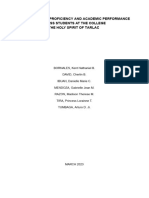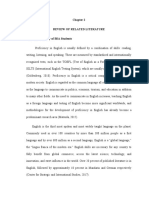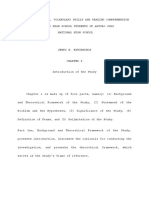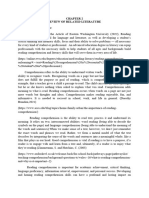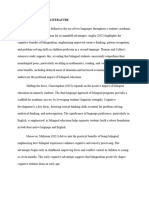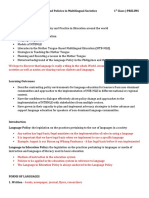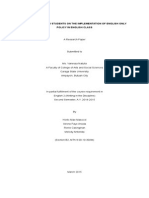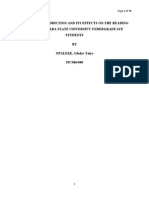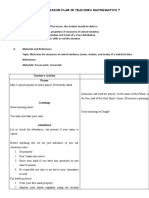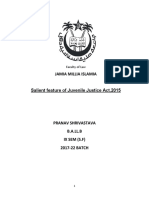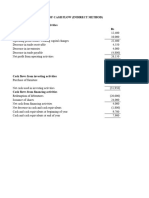0% found this document useful (0 votes)
1K views24 pagesChapter 2 Final
This chapter provides a review of related literature on English language proficiency. Several studies found that the Philippines is considered one of the largest English-speaking nations, but English proficiency has been deteriorating. Other studies examined factors that affect English proficiency, such as teaching methods, multimedia integration, and social learning strategies. Additional studies compared English proficiency between countries and found relationships between proficiency and academic performance as well as economic development.
Uploaded by
Yvanne Kris IVCopyright
© © All Rights Reserved
We take content rights seriously. If you suspect this is your content, claim it here.
Available Formats
Download as DOCX, PDF, TXT or read online on Scribd
0% found this document useful (0 votes)
1K views24 pagesChapter 2 Final
This chapter provides a review of related literature on English language proficiency. Several studies found that the Philippines is considered one of the largest English-speaking nations, but English proficiency has been deteriorating. Other studies examined factors that affect English proficiency, such as teaching methods, multimedia integration, and social learning strategies. Additional studies compared English proficiency between countries and found relationships between proficiency and academic performance as well as economic development.
Uploaded by
Yvanne Kris IVCopyright
© © All Rights Reserved
We take content rights seriously. If you suspect this is your content, claim it here.
Available Formats
Download as DOCX, PDF, TXT or read online on Scribd
/ 24







